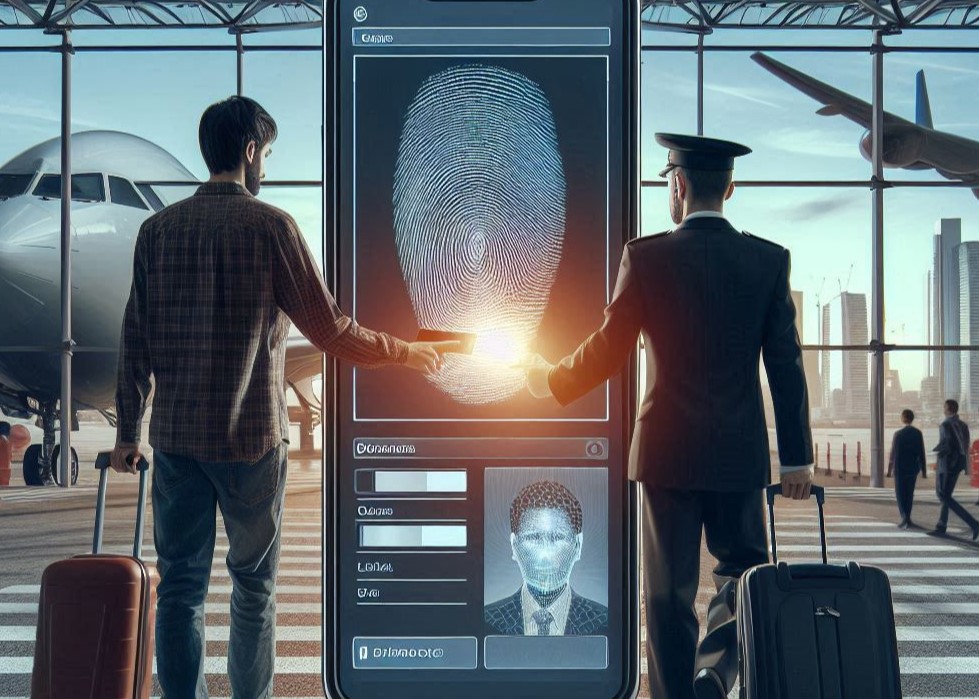GadgetWings
Future of travel is paperless – maybe
Biometric airports and e-visas abound but, in an unevenly distributed future, we are still stuck with paper processes, writes ARTHUR GOLDSTUCK.
International travel is a mind-expanding privilege, but it is also immensely painful, mainly because of how dependent we are on paperwork. Have the wrong piece of paper, or the wrong credentials on a piece of paper, and a routine process can become a nightmare.
When paper tickets gave way to e-tickets more than a decade ago, it was easy to imagine that all travel would eventually become digital. Printed boarding passes were next to go, further convincing us that the future was nigh. In the last two years, biometric boarding began rolling out at airports across the United States, and arriving in Dubai invariably required one only to scan an airport and have your fact recognised by a camera.
Last month, Abu Dhabi’s Zayed International Airport launched a Smart Travel Project, which will see biometric sensors used from check-in to passport control and boarding. In other words, one would probably not even need to take a passport from one’s travel purse.
The only puzzle is why it has taken so long. The moment fingerprint and facial recognition became feasible, a paperless future beckoned. The fact that the most advanced airport in the world – Zayed is being upgraded at a cost $2.3-billion – will take until 2025 to become future-ready, tells us just how far off the possibility is for basic airports.
If you thought the digital divide affected only individuals who cannot afford access, consider South African airports. The free Wi-Fi on offer is often non-functional, even escalators are regularly out of order, and we are beholden to foreign service providers and dodgy tender procedures.
This week, Airports Company South Africa (ACSA) terminated the contract for an Automated Border Control system, including an “e-gate” solution, awarded to French company IDEMIA. The termination was announced a few weeks after ACSA had suspended its IT head for irregularities in awarding the contract. The suspension came only after online tech news site ITWeb raised questions about the sidelining of IDEMIA’s empowerment partner, InfoVerge.
While those aren’t issues of travel technology as such, they highlight the entirely self-made obstacles South Africa faces in joining the future.
ACSA insisted this week: “The biometric and digital identity technology project remains key to ACSA’s short-to-medium term strategy to ensure a seamless and efficient customer experience connecting passengers to their next destinations, opportunities, and goals.”
Then it will still need to address concerns about privacy of biometric data and digital identities, protection of data protection and fears of surveillance.
Meanwhile, the paperless travel possibilities are being demonstrated daily in supposed emerging markets. Both India and Turkiye offer South Africans e-visas, although the process of entering the former remains entrenched in paper-based bureaucracy. Turkiye, on the other hand, has gone a step in the opposite direction of tourist-friendliness. Travellers connecting through Istanbul airport with a long layover are offered anything from free city tours to free hotel stays, depending on the length of the layover. While Dubai airport offers a free hotel stay to business class passengers, Istanbul offers it to all. Class of travel only affects the class of hotel in which they put one up.
Now this may not be about paperless travel, but it encapsulates the motivation for it. In a statement last month, Turkish Airlines emphasised its wish for travellers to “make the most of their layovers”, ensuring that it “becomes a memorable part of your journey”. That’s the same thinking behind the upgrade of Zayed airport, where chief information officer Andrew Murphy said that the intention of a biometric airport was “to make this passenger experience seamless”.
The words attributed to science fiction writer William Gibson, that future is already here but it’s just not evenly distributed, is a perfect description of the future of travel.
* Arthur Goldstuck is CEO of World Wide Worx and editor-in-chief of Gadget.co.za. Follow him on social media on @art2gee.


















